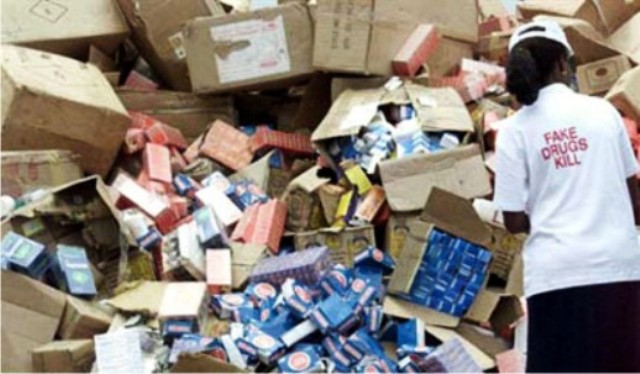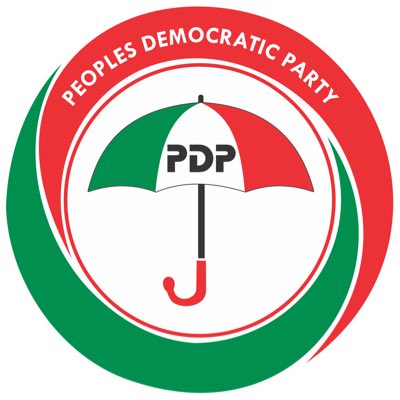News
NAFDAC Bans 30 Pesticides, Other Chemicals

The National Agency for Food and Drug Administration and Control (NAFDAC) has placed a ban on importation and usage of 30 different brands of pesticides and other chemicals found to be harmful to the health of Nigerians and their environment.
NAFDAC referred Nigerians to visit its website for the list of the banned pesticides, warning that it would come down hard on anyone that violates its regulations on importation of pesticides and other chemicals, knowingly or unknowingly.
The agency, in a statement in Abuja, yesterday, indicated that its Director General, Prof. Mojisola Adeyeye, disclosed the information at a two-day meeting of NAFDAC top management committee (TMC) held in Lagos, at the weekend.
She said that NAFDAC is ISO: 900: 2015 Quality Management System (QMS) certified organisation that has put in place procedures to enable it take regulatory decisions to determine whether an active ingredient should be banned or restricted.
Adeyeye, thus dispelled the insinuation that 40per cent of the registered brands (not actives) of pesticide products used in Nigeria were either banned or restricted for use by the European Union (EU), thereby endangering the lives of people, animals, and the environment in Nigeria.
She said: “Chemicals banned by international conventions have been phased out and never entertained for registration or given import permits as raw materials for production.
“Besides, as a sovereign state, Nigeria has regulatory bodies empowered to regulate and control the production, importation, exportation, distribution, advertisement, sale, and use of such chemical products.”
She said that Nigeria was a signatory to several international treaties and conventions that banned chemicals and pesticides such as the Rotterdam Convention, an international treaty designed to facilitate informed decision-making by countries with regard to trade in hazardous chemicals and pesticides.
Adeyeye added that, in the last four years, NAFDAC has reviewed its regulations, guidelines and strengthen collaboration with government agencies and stakeholders to ensure effective regulations, and such collaborative effort has been recorded in agrochemicals regulation and other areas.
She added: “NAFDAC has reviewed the safety of all registered agrochemicals in Nigeria in consultation with relevant stakeholders, and had initiated four years’ phase-out plan for obsolete and some hazardous agrochemicals.
“Such phase-out plan is currently running for Paraquat, which will be phase-out in 2024 and Atrazine in 2025 while 100ml pack size of Dichlorvos (DDVP) is already banned due to inappropriate use.
“So far, about 30 pesticides have been banned in Nigeria. A prudent and responsible use of pesticides and agrochemicals is the paramount caution in the use of the products in Nigeria.”
NAFDAC boss, however, stressed the need for ethical and responsible use of regulated products, stressing that all should always buy and use registered products.
‘’The manufacturers’ instruction as indicated on the product label plays a significant role in achieving safe use of regulated products, therefore, strict compliance to it is highly inevitable
“This is extremely important to forestall the risk of mishandling, poor storage, unsafe exposure to the products and unregistered/banned agrochemicals in circulation.”
News
Rivers PDP Debunks Sale Of LGA Election Forms

The Publicity Secretary of the Peoples Democratic Party (PDP) in Rivers State, Dr. Kenneth Yowika, has debunked claims that the party has commenced sale of forms for chairmanship and councillorship elections across the 23 local government areas of the state.
Yowika made the rebuttal in a statement made available to newsmen on Wednesday, describing the publication on the social media as baseless and untrue.
He urged members of the PDP to disregard the claim, saying that official communication regarding the sale of forms would be disclosed through the appropriate channels.
“With reference to information trending on social media, it has been falsely claimed that the sale of forms for Chairmanship and Councillorship elections in the 23 Local Government Areas (LGAs) of Rivers State will begin soon.
“However, the party has firmly denied these rumours, stating that they are baseless and untrue.
“The party has its own established methods of reaching out to its numerous supporters.
“The People’s Democratic Party, a law-abiding organisation, will patiently await the release of guidelines from the recently inaugurated Rivers State Independent Electoral Commission (RSIEC) before considering any sale of election forms.
“The PDP is urging its members to remain calm as official communication regarding the sale of forms will be disclosed through appropriate channels,” the statement read.
Enoch Epelle
News
South-South contributes N34trn to Nigeria’s economy in 2024 – Institute
Prof. Pius Olanrewaju, President of the Chartered Institute of Bankers of Nigeria (CIBN), has stated that the South-South region contributes N34 trillion to country’s economy in 2024.
He made the remark at the South-South Zonal Banking and Finance Conference in Calabar, yesterday.
He spoke on the theme, ‘’Building An Inclusive South-South: Economic Diversification as a Catalyst For Development.’’
Olanrewaju, who quoted the data from the Cable Data Index, said the feat was more than 21 per cent of Nigeria’s real Gross Domestic Product (GDP).
The president described the growth as ‘’ impressive,’’ saying that it was not driven by oil alone but significant expansions in trade, services, and the creative industries.
According to him, to fully harness this potential, coordinated financial, technological, and policy support is essential.
“As we work to reposition the South-South for broad-based prosperity, the financial system must play a central role, not merely as a source of capital, but as a catalyst for innovation, ideas incubation, and inclusive economic growth.
“This conference, therefore, provides a strategic opportunity for stakeholders to reimagine the South-South economy, not merely as a resource belt, but as a region of diverse capabilities and resilient enterprises.”
Olanrewaju added that Nigeria must move beyond old models and chart a new course for the development of the South-South region, where financial institutions and stakeholder collaborate to diversify the economy for shared prosperity.
He, however, commended Gov. Bassey Otu for his pledge of land for CIBN Secretariat in Cross River and being the first sitting governor to willingly undergo and complete the Chartered Bankers Programme.
On his part, Gov. Otu said that the conference discussion on the economic diversification in South-South region was timely against the backdrop of global trade and economic volatility that was affecting the nation’s economy.
Represented by his deputy, Mr Peter Odey, Otu said the South-South region must now act with urgency to diversify its economy while leveraging its shared natural endowment in agriculture and extractive resources.
“This conference must help develop tailored financial solutions that reflect the unique strengths and realities of states like Cross River in the south-south.
“Diversification should be evidence-based and must be backed not just by financial advice but project focused financing and real investment support,” he noted.
He said that Cross River had taken the bold step to invest in its agricultural sector by launching an Agro processing hub.
Otu further said that the state had invested in aviation by acquiring more aircrafts for Cally Air, construction of the Bakassi Deep Seaport and injecting N18 billion in its tourism sector.
Similarly, Mr Tolefe Jibunoh, Cross River Branch Controller of the Central Bank of Nigeria (CBN) said that the region was blessed with natural resources, cultural diversities and immense human potentials.
Jibunoh, who was represented by Mr Segun Shittu, Head, Currency Control Office, CBN, Calabar, noted that strategic diversification could unlock unprecedented opportunities for growth in the region.
He added that the CBN remained steadfast to maintain monetary possibilities and promote a sound financial system as a catalyst for sustainable economic development for the benefit of all.
News
Rivers Chief Judge Frees 21 Awaiting Trial Inmates
In a bid to decongest the correctional facilities in Rivers State, the Chief Judge, Justice Simeon Chibuzor Amadi, has pardoned 21 inmates awaiting trial at the Port Harcourt Maximum Correctional Centre.
The exercise, which held yesterday in Port Harcourt, was part of the Chief Judge’s efforts to reduce the prison population, which has exceeded its capacity.
Justice Amadi noted that the correctional centre, built to accommodate 1,500 inmates, currently houses over 2,500 inmates.
He emphasized the need for concerted efforts by all stakeholders in the criminal justice system to address the issue of prison decongestion.
The Chief Judge stated that keeping inmates in custody without trial does not benefit society and instead punishes them without justification.
He explained that the decision to release the inmates was based on a review of their cases.
The Tide reports that those with ongoing court cases were not considered for release, but inmates whose case files could not be traced and had spent years in custody without any progress in their trials were freed.
The judge maintained that the goal delivery exercise was not the normal routine duty but fundamental aspects of his judicial responsibilities rooted in legal traditional as provided in the criminal justice released from custody special provision Act Cap C,4c laws of the Federation of Nigeria 2004 and section 34 sub 1 of Rivers state Administration of Criminal Justice Law No 2015.
Among those released were two mentally challenged inmates who had spent between eight and 10 years in custody without any clear charges or trial progress.
Justice Amadi advised the freed inmates to become change agents in society and avoid repeating the crimes that led to their incarceration.
He also urged the Police to conduct diligent investigations before charging suspects to court, emphasizing the importance of proper legal procedures.
The State Controller of Correctional Service, Madumere Felix, expressed gratitude to the Chief Judge for the exercise and highlighted the challenges faced by the correctional service.
He disclosed that the maximum correctional centre has 503 inmates on death row and over 2,500 inmates in total, far exceeding its capacity.
Felix called on the Chief Judge to help channel the service’s challenges to the state government for support and assistance.
-
News4 hours ago
PCRC Dismisses Claims Of Police Strike As Fake, Mischievous
-
Politics18 mins ago
2027: Group Vows To Prevail On Diri To Dump PDP For APC
-
Niger Delta3 hours ago
Bishop Mocks Fake Prophecy Seekers … As Priests Relive Challenges At Ordination Ceremony
-
Business6 hours ago
2027: Group Vows To Prevail On Diri To Dump PDP For APC
-

 News2 hours ago
News2 hours agoRivers Police Arrest Notorious Cultist, Recover Sophisticated Ammunition
-
News4 hours ago
NUP Denies Planned Protest Over N32,000 Pension Increment
-
Rivers3 hours ago
ASALGA Community Debunks Reports On Ownership Of Land Its Settlements
-
Opinion5 hours ago
Welcome! Worthy Future For R/S

